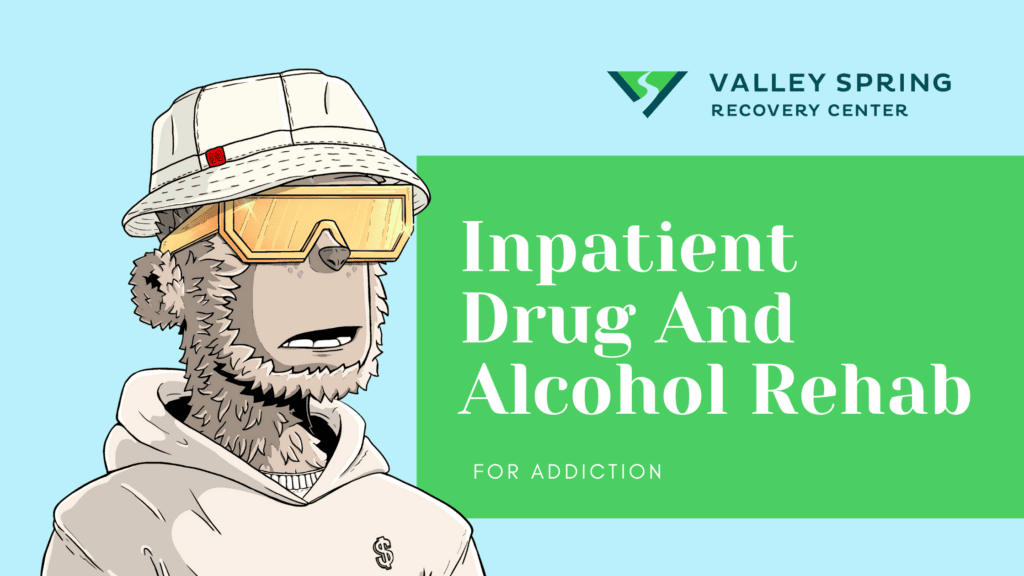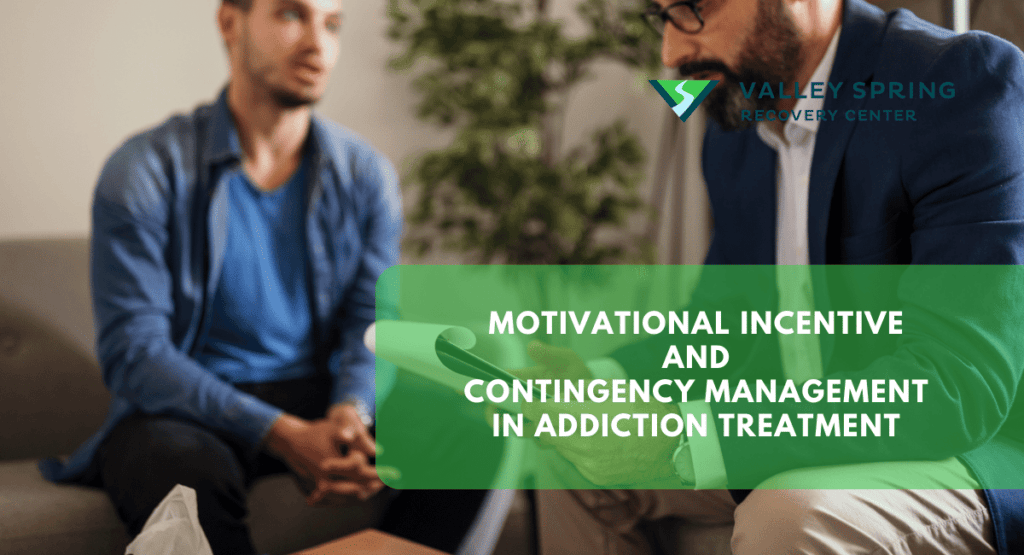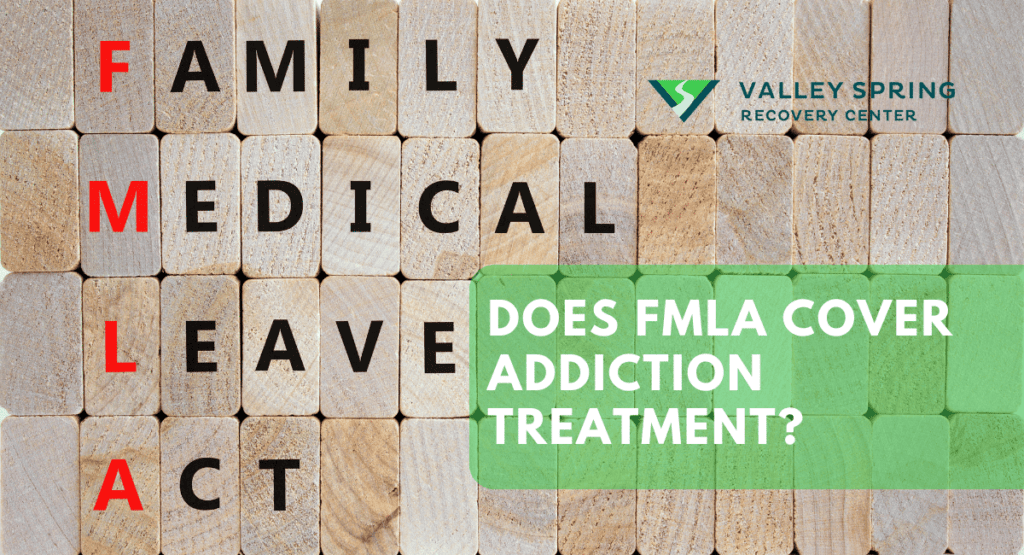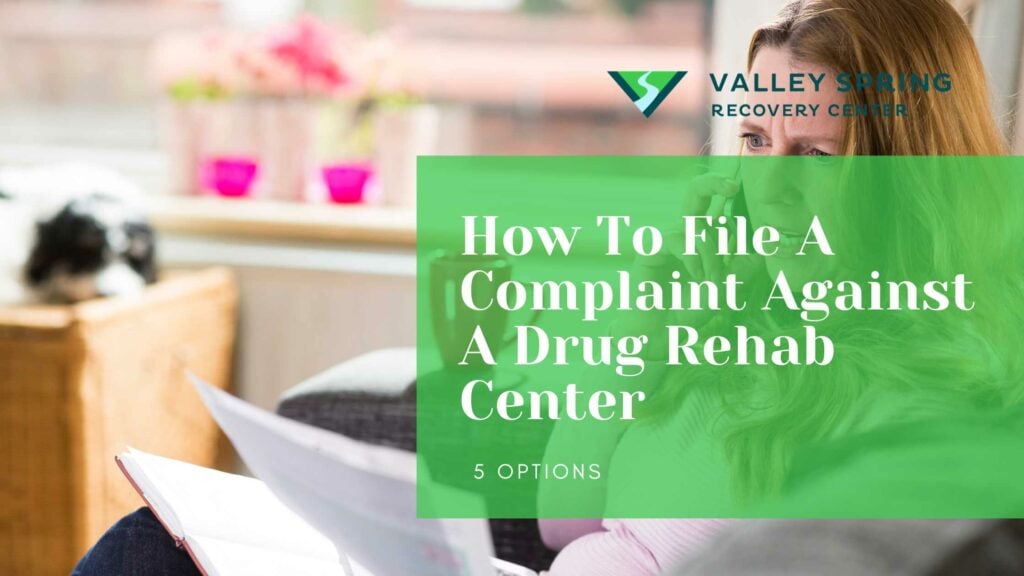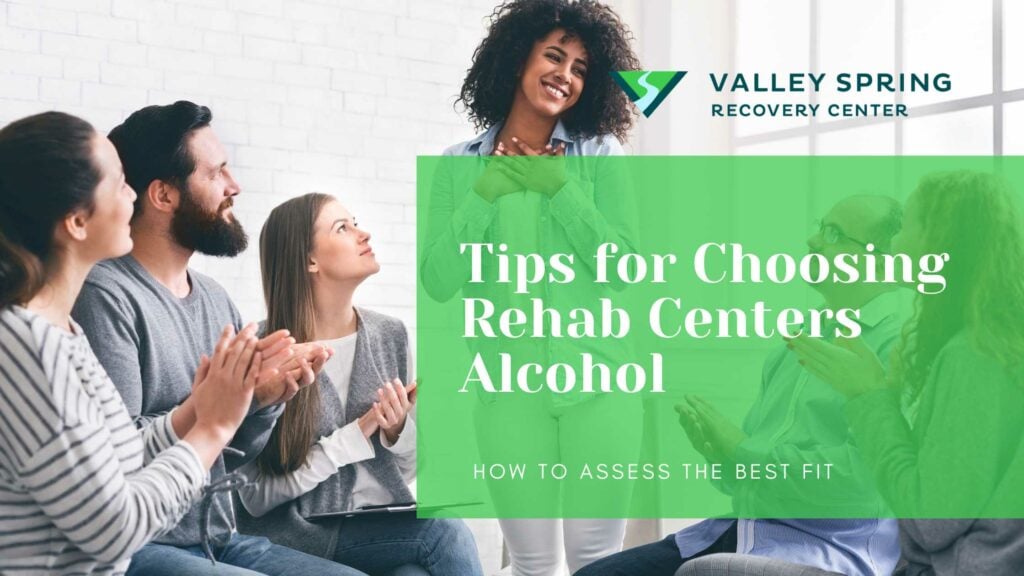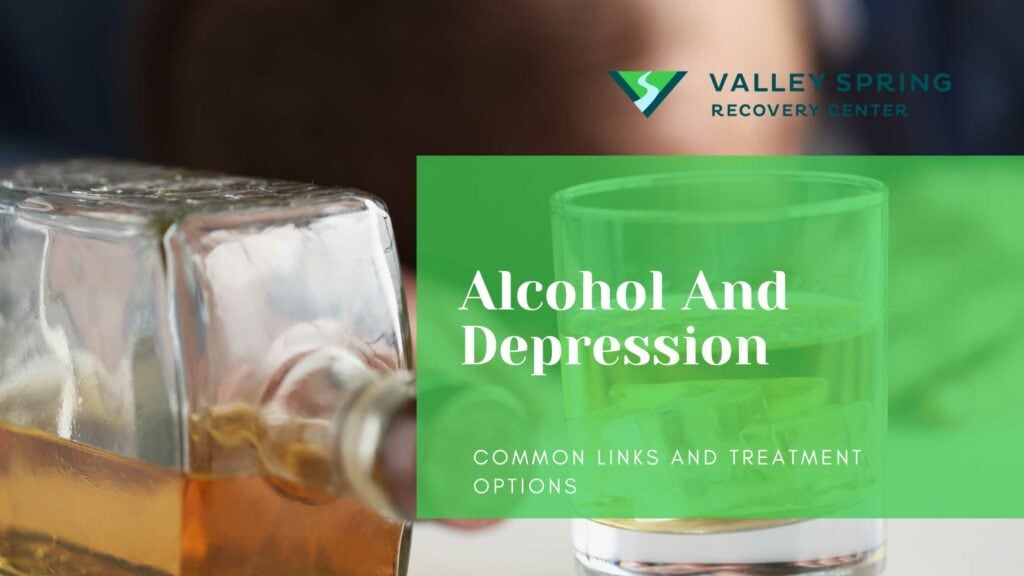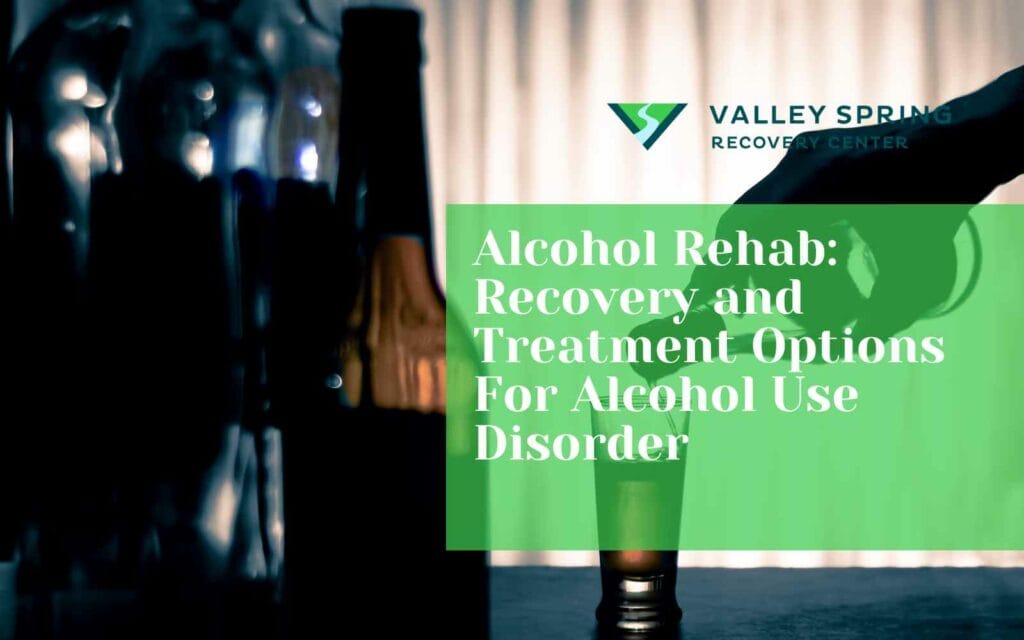Embarking on the path to recovery from drug addiction is a significant and courageous step. In the pursuit of a healthier, drug-free life, understanding the ins and outs of inpatient drug rehab is pivotal.
Inpatient Drug Rehab refers to a specialized form of addiction treatment where individuals reside at a treatment facility for an extended period to receive comprehensive therapy and support for overcoming substance abuse and achieving lasting sobriety.
Different components of inpatient rehab address different parts of individuals affected by substance use disorder including their physical body, emotional state and behaviors, mental health, practical problems such as legal or financial troubles that resulted from the addiction as well as the creation of a positive support system and plan for leaving treatment which includes aftercare and relapse prevention planning. These key components of inpatient rehab address the parts of the addicted individual that were affected by chronic drug use and can be compiled into a holistic recovery plan.
What is Inpatient Drug Rehab?
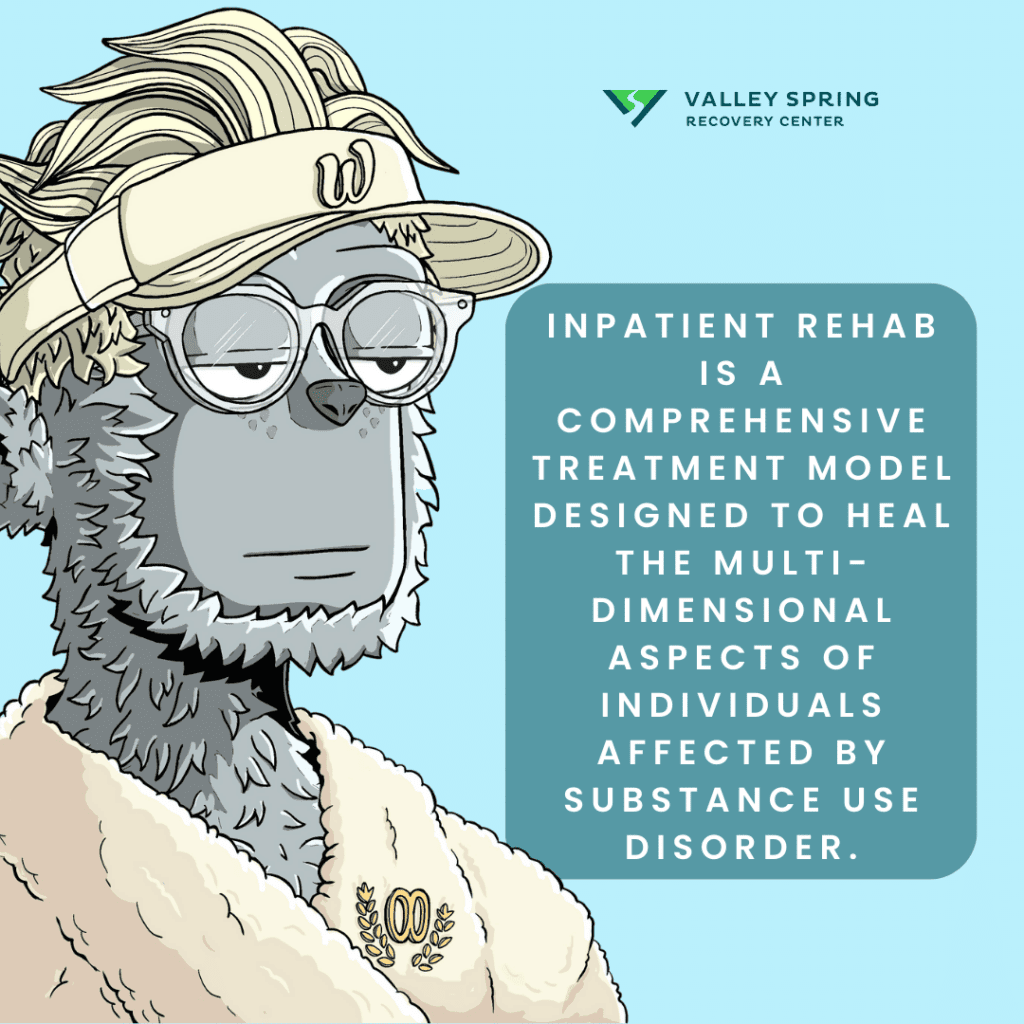
Inpatient drug rehab, as defined by the Substance Abuse and Mental Health Services Administration (SAMHSA), is a hospital-based treatment providing 24/7 medical care for individuals with severe substance use disorders or co-occurring medical conditions. This level of care, often involving detoxification, is for patients requiring acute medical attention in a controlled environment.
Conversely, what the public commonly refers to as ‘inpatient rehab’ is more accurately termed ‘residential rehab.’ Residential rehab centers offer structured, therapeutic programs in a non-hospital setting, providing long-term care for those seeking to overcome addiction.
While residential rehab centers focus on comprehensive recovery, addressing physical, emotional, and behavioral health through therapy and counseling, inpatient rehab is characterized by its intensive medical and psychiatric care within a hospital setting.
Understanding this distinction is crucial when seeking treatment, as each provides a different level of care tailored to the severity and nature of an individual’s addiction and medical needs.
For this article, we will be describing residential rehab since that is what most people seeking treatment are searching for. Inpatient rehab can be likened to a short hospital stay which would transition to residential rehab as soon as medically necessary.
What Happens During Inpatient Rehab?
The fundamental principle behind inpatient rehab is to create a highly controlled and therapeutic environment within a specialized treatment facility to treat individuals in active addiction who need counseling for mental health as well as physical care and monitoring from doctors and nurses which can not be provided through outpatient treatment. People who are compulsively addicted to drugs or alcohol voluntarily enter inpatient rehab programs. Upon admission, they become residents (patients) of the facility, residing there for a predetermined duration, which can vary depending on the severity of their addiction as well as the parts of the individual that need to be healed. This may include the treatment of mental disorders like PTSD and behavioral characteristics like codependency, along with medical needs such as high blood pressure.
Inpatient rehab offers a holistic approach to addiction treatment and combines a variety of evidence-based therapies, counseling sessions, and medical supervision. These components work together to address the physical, psychological, and emotional aspects of addiction. Residents participate in individual counseling to explore personal challenges, group therapy to connect with peers facing similar struggles, and sometimes family therapy to mend relationships strained by addiction.
This highly structured and supportive environment of inpatient rehab is designed to minimize exposure to external triggers and distractions that may lead to relapse. Residents follow a daily schedule that includes therapy sessions, group activities, and personal time for reflection and self-improvement. Medical professionals and addiction specialists provide 24/7 supervision and care, ensuring residents’ safety during the detoxification process, if required, and throughout their treatment journey. The ultimate goal is to equip individuals with the skills, coping mechanisms, and support system needed to break free from addiction, achieve lasting sobriety, and improve their overall quality of life.
1) Medical Care
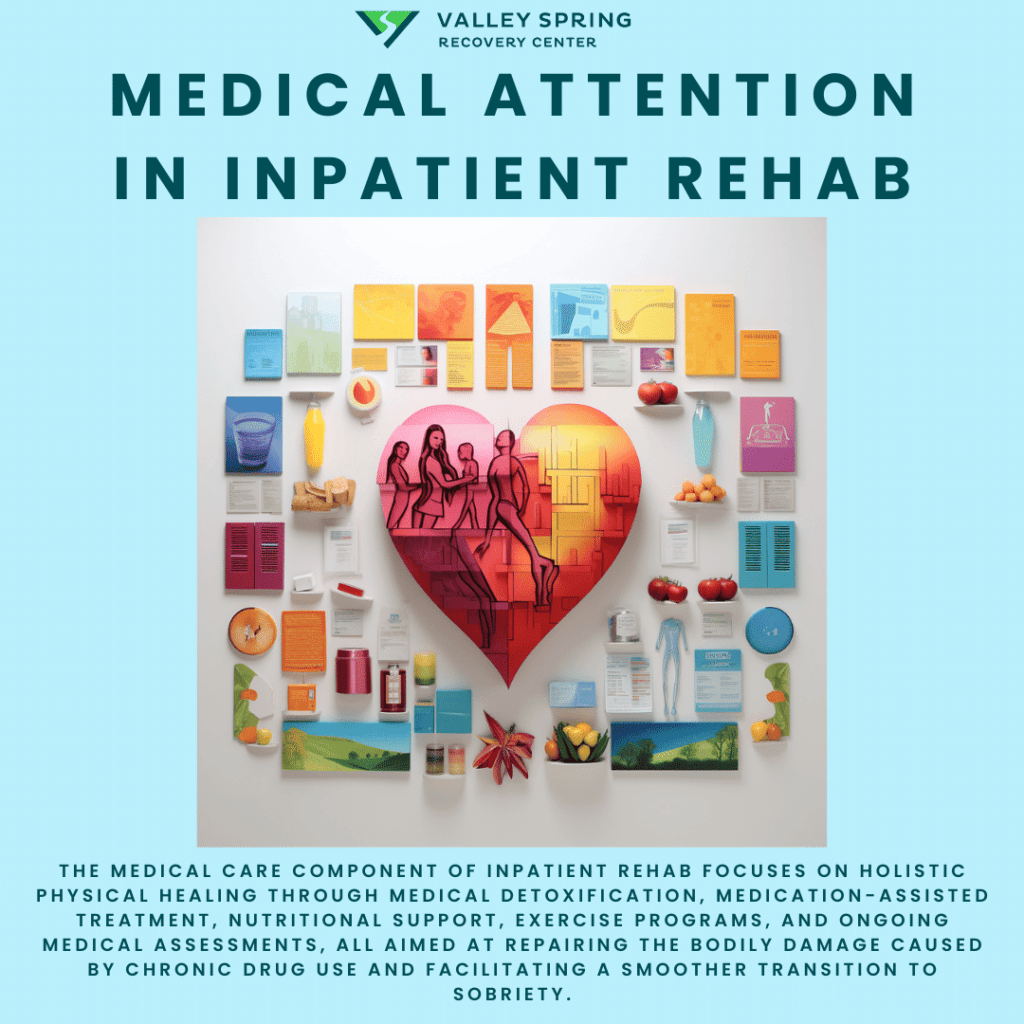
Addressing physical health is pivotal in the inpatient treatment journey, targeting the bodily repair of individuals who have suffered due to ongoing drug use. The onset of withdrawal symptoms is a common occurrence as one ceases drug consumption and embarks on the path to sobriety, the severity of which varies based on the drug type.
Medical Detoxification: The journey to recovery often begins with medical detoxification, a critical phase where the body is cleansed of harmful substances. Supervised by healthcare professionals, medical detox ensures that withdrawal symptoms are managed effectively, reducing the risks of complications. This initial step is vital for preparing the body for the subsequent stages of rehab.
Medication-assisted treatment (MAT) is another cornerstone in addressing physical health. Utilizing FDA-approved medications, MAT aims to alleviate withdrawal symptoms and cravings, making the recovery process more manageable. It’s essential to note that MAT is most effective when combined with behavioral therapies.
Proper nutrition support is often overlooked but is crucial in the recovery process. A balanced diet rich in essential nutrients helps restore physical well-being and boosts the body’s ability to heal, especially in early recovery. Many inpatient rehab centers offer nutritional counseling as part of their comprehensive care package.
Physical Exercise and Rehabilitation is an integral component of holistic recovery. Exercise releases endorphins, which naturally elevate mood and reduce stress. Many inpatient facilities offer structured exercise programs, ranging from yoga to strength training, aimed at improving physical health and mental well-being.
Regular medical assessments are conducted to monitor the patient’s physical health throughout the recovery process. These check-ups may include blood tests, heart rate monitoring, and other diagnostic procedures to ensure that the body is responding well to treatment.
2) Emotional And Behavioral Treatment
Addressing emotional and behavioral well-being is a critical facet of the inpatient rehab journey, focusing on the psychological repair of individuals who have been impacted by chronic drug abuse. Emotional fluctuations and behavioral changes are common experiences as one transitions from active addiction to the path of recovery, the intensity and nature of which can vary based on the individual’s unique psychological profile.
Cognitive Behavioral Therapy (CBT): One of the most widely used approaches in rehab is Cognitive Behavioral Therapy (CBT). This evidence-based method helps individuals identify and challenge negative thought patterns and behaviors that contribute to substance abuse. By replacing these with healthier coping mechanisms, CBT lays the groundwork for long-term emotional stability.
Dialectical Behavior Therapy (DBT): DBT is another key modality that focuses on emotional regulation and interpersonal effectiveness. Through skills training and mindfulness practices, DBT equips individuals with the tools to manage emotional triggers and build healthier relationships.
Emotional Support Groups: Peer support plays a significant role in emotional well-being. Support groups like Alcoholics Anonymous (AA) or Narcotics Anonymous (NA) provide a safe space for sharing experiences and coping strategies, reinforcing the emotional support network essential for sustained recovery.
Mindfulness and Stress Reduction Techniques: Mindfulness practices such as meditation and deep-breathing exercises are integrated into the treatment plan to help manage stress and improve emotional regulation. These techniques are particularly effective in early recovery, where emotional volatility is common.
Psychological Assessments and Monitoring: Regular psychological evaluations are conducted to gauge emotional and behavioral progress, allowing for timely adjustments to the treatment plan. These assessments may include standardized tests and one-on-one counseling sessions to ensure emotional well-being is on track.
3) Mental Health Care
Addressing mental health is an indispensable element of the inpatient rehab experience, aimed at the psychological restoration of individuals who have been adversely affected by persistent drug abuse. As one moves from active addiction towards recovery, mental health challenges such as anxiety, depression, PTSD, or co-occurring disorders often surface, the severity and type of which can differ based on the individual’s unique mental health conditions.
Dual Diagnosis Treatment: For those diagnosed with co-occurring mental health disorders alongside substance abuse, dual diagnosis treatment is often recommended. This approach integrates substance abuse treatment with mental health services, providing a comprehensive care plan tailored to individual needs.
Pharmacotherapy involves the use of medications to treat underlying mental health conditions that may contribute to substance abuse. Antidepressants, antianxiety medications, or antipsychotics may be prescribed as part of a balanced treatment regimen.
Psychoeducation is an essential component that educates individuals about the nature of addiction and its impact on mental health. This knowledge empowers patients to understand the interconnectedness of substance abuse and mental well-being, facilitating more effective treatment.
Cognitive Enhancement Therapy (CET): CET is a newer approach that focuses on improving cognitive functions impaired by drug abuse, such as attention, memory, and problem-solving skills. This is particularly beneficial for individuals who have experienced cognitive decline due to long-term substance abuse.
Routine Psychological Assessments: Much like its emotional and behavioral counterpart, regular psychological assessments are conducted to monitor mental health progress. These may include diagnostic interviews, standardized tests, and medication reviews to ensure that the mental health treatment plan is effectively addressing the individual’s needs.
4) Case Management
Case management serves as a comprehensive support system within the inpatient rehab framework, targeting the logistical and practical challenges that individuals may face due to the repercussions of drug abuse. As one transitions from active addiction to recovery, financial and legal issues often come to the forefront, the complexities of which can vary based on the individual’s unique circumstances.
Financial Counseling: Financial instability is a common byproduct of chronic drug abuse. Case managers often work with individuals to create a financial recovery plan, which may include budgeting, debt management, and connecting with financial aid resources.
Legal Assistance: Legal issues such as pending court cases, probation, or child custody battles can add layer of stress to the recovery process. Case managers can help by connecting individuals with legal advisors and providing support in navigating the legal system.
Employment Support: Maintaining or regaining employment is crucial for financial stability. Case managers may offer job placement services, resume building, and interview preparation to help individuals reintegrate into the workforce.
Housing Assistance: Stable housing is a key factor in long-term recovery. Case managers can assist in finding transitional housing or connect individuals with programs that offer housing support.
Insurance Navigation: Understanding and utilizing insurance benefits can be a complex process. Case managers help individuals understand their insurance coverage, how it can be applied to treatment costs, and what additional resources may be available.
5) Developing Support Systems
Building a robust support system is a vital part of the inpatient rehab journey, focusing on the relational fortification of individuals who have been burdened by the cycle of drug abuse. As one progresses from active addiction to recovery, the inclusion of key people such as family, friends, and mentors becomes increasingly important, the dynamics of which can vary based on the individual’s social and relational context.
Family therapy is often a cornerstone in building a strong support system. It involves the participation of close family members in the treatment process, aiming to repair broken relationships and foster a supportive home environment.
Peer Support Groups: In addition to formal therapy, peer support groups like Alcoholics Anonymous (AA) or Narcotics Anonymous (NA) offer invaluable emotional and experiential support. These groups provide a community of individuals who are also on the path to recovery, offering a unique form of mutual support.
Mentorship Programs: Some rehab centers offer mentorship programs where recovered addicts guide those who are new to the recovery process. This peer-to-peer guidance can be instrumental in providing practical advice and emotional support. Individuals can also get a mentor through peer recovery groups like AA where the mentor is referred to as a ‘sponsor’.
Social Skills Training: Social skills training is integrated into the treatment plan to help individuals build healthier interpersonal relationships. This includes communication skills, conflict resolution, and emotional intelligence training.
6) Aftercare and Discharge Planning
Aftercare and discharge planning are integral components of the inpatient rehab experience, focusing on the sustained well-being and continued recovery of individuals after being discharged from inpatient treatment. As one prepares to transition from the controlled environment of inpatient rehab to the complexities of everyday life, a well-structured aftercare plan becomes crucial. The effectiveness of this plan can vary based on the individual’s unique needs and circumstances. The key components of a successful discharge plan include the following:
Relapse Prevention Strategies: A cornerstone of aftercare is relapse prevention. This involves equipping individuals with the tools and coping mechanisms to identify and manage triggers, thereby reducing the risk of relapse.
Ongoing Therapy and Counseling: Continued psychological support is often recommended to maintain emotional and mental stability. This can be accomplished through a lower level of care for addiction treatment which signifies the intensity of services. Outpatient treatment programs address the emotional, psychological, mental health needs, and behavioral needs of patients through individual therapy, group sessions, or specialized treatments like Cognitive Behavioral Therapy (CBT). Outpatient programs serve as a good transition after inpatient care is completed.
Support Group Integration: Long-term recovery is often supported by ongoing participation in support groups like Alcoholics Anonymous (AA) or Narcotics Anonymous (NA). These groups offer a community of like-minded individuals focused on sustained sobriety.
Medication Management: For those on Medication-Assisted Treatment (MAT) or other psychiatric medications, a medication management plan is often included in aftercare to ensure compliance and effectiveness.
Vocational and Educational Support: Reintegration into society may involve vocational training or educational programs. Aftercare plans often include resources and referrals to help individuals achieve their career or educational goals.
Family and Social Reintegration: A strong support system is vital for long-term recovery. Aftercare plans often involve continued family therapy and social skills training to help individuals rebuild and maintain healthy relationships.
Scheduled Follow-ups: Regular check-ins with healthcare providers and case managers are scheduled to monitor progress and make necessary adjustments to the aftercare plan, ensuring it remains aligned with the individual’s evolving needs.

What are the Benefits of Inpatient Drug Rehab?
Inpatient residential drug rehab is considered to be one of the most effective types of drug rehabilitation for most drug addictions because the patient lives at the facility which offers the healthcare providers and clinicians enough time to address multiple parts of the addicted individual that require healing. Here are some of the benefits of residential addiction treatment:
- 24/7 Support: Inpatient rehab provides you with continuous medical and emotional support. This means you’ll have professionals by your side, ready to help you through any difficulties, day or night.
- Structure for Recovery: You’ll be in an environment that’s highly structured. This helps keep you away from the temptations and triggers that could lead to drug use and allows you to focus solely on your recovery.
- Intensive Therapy: Expect daily therapy sessions. You’ll have one-on-one counseling, group therapy, and even family therapy to address all aspects of your addiction and its underlying causes.
- Peer Support: You won’t be alone on this journey. In inpatient rehab, you’ll meet others who are going through similar struggles. These bonds can provide you with motivation and a sense of community.
- Long-Term Focus: The program isn’t just about getting you clean; it’s about equipping you with the tools and strategies for long-term recovery.
- Safe Detox: If you need detoxification, you’ll get it under careful medical supervision. This ensures your safety during withdrawal.
- Holistic Approach: You’ll have access to holistic therapies such as yoga, meditation, and art therapy, addressing not only your physical but also your mental and emotional well-being.
- Privacy Matters: Your privacy and confidentiality are a top priority in inpatient rehab, so you can focus on your recovery without worrying about judgment.
- Better Outcomes: Studies show that people who complete inpatient programs tend to have more success in their long-term recovery compared to those who only receive outpatient treatment.
- Accountability: The structured daily routine helps you build healthy habits and routines, which can reduce the risk of relapse.
- Dual Diagnosis: If you have other mental health issues, those will be addressed alongside your addiction, ensuring you receive comprehensive treatment.
- Less Distractions: By being temporarily removed from your home and social environment, you can escape distractions and external stressors that might have contributed to your addiction.
- Family Support: Many programs involve your family in the treatment process. This creates a strong support system for your recovery.
- Aftercare Planning: After inpatient rehab, there’s a plan in place to provide you with support and guidance as you transition back to your daily life.
- Supportive Community: You’ll be part of a community where people understand what you’re going through, providing you with encouragement and empathy.
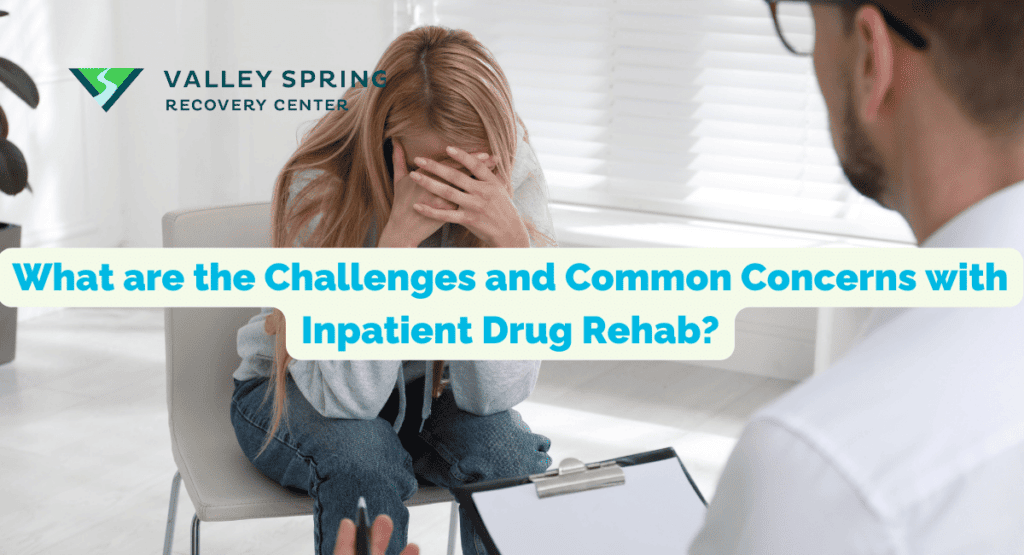
What are the negative aspects of Inpatient Residential Drug and Alcohol Rehab?
Going through inpatient drug rehab can be a transformative experience, but it’s essential to be aware of some common challenges and concerns you might face. Every step you take, every challenge you overcome, brings you closer to lasting recovery.
- Privacy and Confidentiality: Concerns about privacy and confidentiality can be on your mind. Rest assured, rehab centers prioritize keeping your information confidential, allowing you to focus on your recovery.
- Adjusting to the Inpatient Setting: Adapting to the structured environment and being away from your usual surroundings can be challenging initially, but it’s designed to help you break free from old habits.
- Time Commitment: Inpatient programs often require a significant time commitment, which may be challenging if you have work or family obligations.
- Separation from Loved Ones: Being away from family and friends for an extended period can be emotionally difficult.
- Cost: Inpatient rehab can be expensive, and it may not be affordable for everyone. It’s essential to consider the financial aspect. However, In some cases, inpatient rehab is cost-effective in the long run, as it can lead to reduced healthcare costs related to addiction and its consequences. (NCBI)
- Limited Independence: Inpatient rehab programs are highly structured, which means limited personal freedom and autonomy during your stay.
- Stigma: Some individuals may worry about the stigma associated with entering a rehab facility, but it’s important to remember that seeking help is a courageous step toward recovery.
- Not Suitable for Everyone: Inpatient rehab might not be the best fit for everyone. Some individuals may have responsibilities or commitments that make it impractical.
- Transitioning Back to Daily Life: Reintegrating into your daily life after inpatient rehab can be challenging. It’s essential to have a strong aftercare plan in place.
What types of therapies are offered in inpatient rehab?
Inpatient rehab provides a comprehensive range of therapeutic options that can be provided based on the results of the diagnostic assessment, specific needs and circumstances:
- Individual Counseling: You’ll have one-on-one sessions with a therapist. This is a safe space for you to talk about your struggles, triggers, and personal goals.
- Group Therapy: In a group setting, you’ll share experiences and insights with others facing similar challenges. It can be reassuring and motivating to know you’re not alone.
- Cognitive-Behavioral Therapy (CBT): This therapy helps you identify and change negative thought patterns and behaviors associated with addiction. It’s all about building healthier habits.
- Dialectical-Behavior Therapy (DBT): DBT focuses on managing emotions and improving interpersonal relationships, which can be crucial for recovery.
- Motivational Interviewing: Therapists use this approach to help you find and strengthen your motivation to change and stay committed to recovery.
- Family Therapy: Your loved ones can be involved in therapy to improve communication, understand your struggles, and provide support for your recovery.
- 12-Step Facilitation: This approach is based on the principles of groups like Alcoholics Anonymous (AA) and Narcotics Anonymous (NA), offering a structured program for recovery.
- Holistic Therapies: These may include yoga, meditation, art therapy, or music therapy. They address your physical, mental, and emotional well-being.
- Educational Workshops: You’ll learn about addiction, relapse prevention, coping skills, and strategies for maintaining sobriety.
- Experiential Therapies: Some rehab programs offer activities like outdoor therapy, equine therapy, or adventure therapy to help you connect with yourself and nature.
- Mindfulness-Based Therapies: These practices, such as mindfulness meditation, can help you manage cravings and stress.
- Trauma-Informed Therapy: If you’ve experienced trauma, this therapy can address its impact on your addiction and recovery.
- Medication-Assisted Treatment (MAT): In some cases, medications may be prescribed to assist in managing withdrawal symptoms and cravings.
Whether you resonate with one-on-one counseling, the camaraderie of group therapy, or the holistic approach of mindfulness and experiential therapies, your recovery path will be as unique as you are. It’s all about finding the therapies that empower you on your road to lasting sobriety.
The specific therapies offered can vary depending on the specialties of the clinicians in the rehab center and the type of emotional and behavioral support required to address affected areas of the substance user.
How to Choose the Right Inpatient Drug Rehab Center?
As you embark on the journey to choose the right inpatient drug rehab center, it’s essential to keep in mind that this decision marks a significant turning point in your life. You’re not alone in this process; many others have faced the same choices and uncertainties. By considering factors like location, accreditation, treatment approaches, and staff qualifications, you’re taking the proactive steps necessary to pave your way toward recovery. Here’s what you need to consider to make an informed choice:
- Location and Accessibility: Start by thinking about where you’d feel most comfortable. Do you want to be close to home, or would a more distant location be better to remove yourself from triggers and distractions?
- Accreditation and Licensing: Ensure that the rehab center is accredited and licensed by relevant authorities. This confirms that they meet the necessary standards for quality care.
- Treatment Approaches: Different centers may have varying treatment philosophies and approaches. Consider what resonates with you—whether it’s a holistic approach, faith-based programs, or specialized treatment for co-occurring disorders.
- Staff Qualifications: Research the credentials and experience of the staff members, including therapists, counselors, and medical professionals. You want a team with expertise in addiction treatment.
- Cost and Insurance Coverage: Understand the cost of the program and check if your insurance covers inpatient rehab. It’s crucial to have a clear picture of the financial aspect.
- Reviews and Testimonials: Look for feedback from individuals who have completed the program. Their experiences can provide valuable insights into what you can expect.
- Treatment Duration: Consider the length of the program. Some centers offer short-term programs, while others focus on longer stays. Choose what aligns with your needs and goals.
- Amenities and Environment: Think about the facilities and the overall environment. Does it feel comfortable and conducive to your recovery journey?
- Family Involvement: If family involvement is important to you, check if the center encourages and facilitates family therapy and education.
- Support Aftercare: Inquire about the aftercare and relapse prevention programs offered. A strong aftercare plan is crucial for maintaining sobriety after leaving the center.
- Peer Support: Ask about the availability of peer support groups or alumni networks. Staying connected with those who have been through similar experiences can be very beneficial.
- Cultural Sensitivity: If you have specific cultural or religious preferences, consider whether the rehab center can accommodate those.
Can I Choose The Location Of The Inpatient Rehab Center?
You have the choice to select the location of the inpatient rehab center. This decision is about what makes you feel most comfortable and supported during your recovery journey. Some people prefer centers that are close to home, allowing them to stay connected with family and friends. Others find that a more distant location helps them break away from familiar triggers and distractions. It’s entirely up to you, and it’s important to choose a location that aligns with your needs and helps you focus on your path to recovery.
How Long Does Inpatient Drug Rehab Typically Last?
The duration of inpatient drug rehab can vary from person to person, and it depends on several factors. On average, programs typically last anywhere from 28 days to 90 days. However, the length of your stay will be determined by your specific needs and progress in treatment. It’s essential to focus on your individual journey and work with your treatment team to determine the right length of addiction treatment for your recovery. They will assess your progress and adjust the length of your stay accordingly to ensure you receive the best care possible.
How to Prepare for Life After Inpatient Rehab?
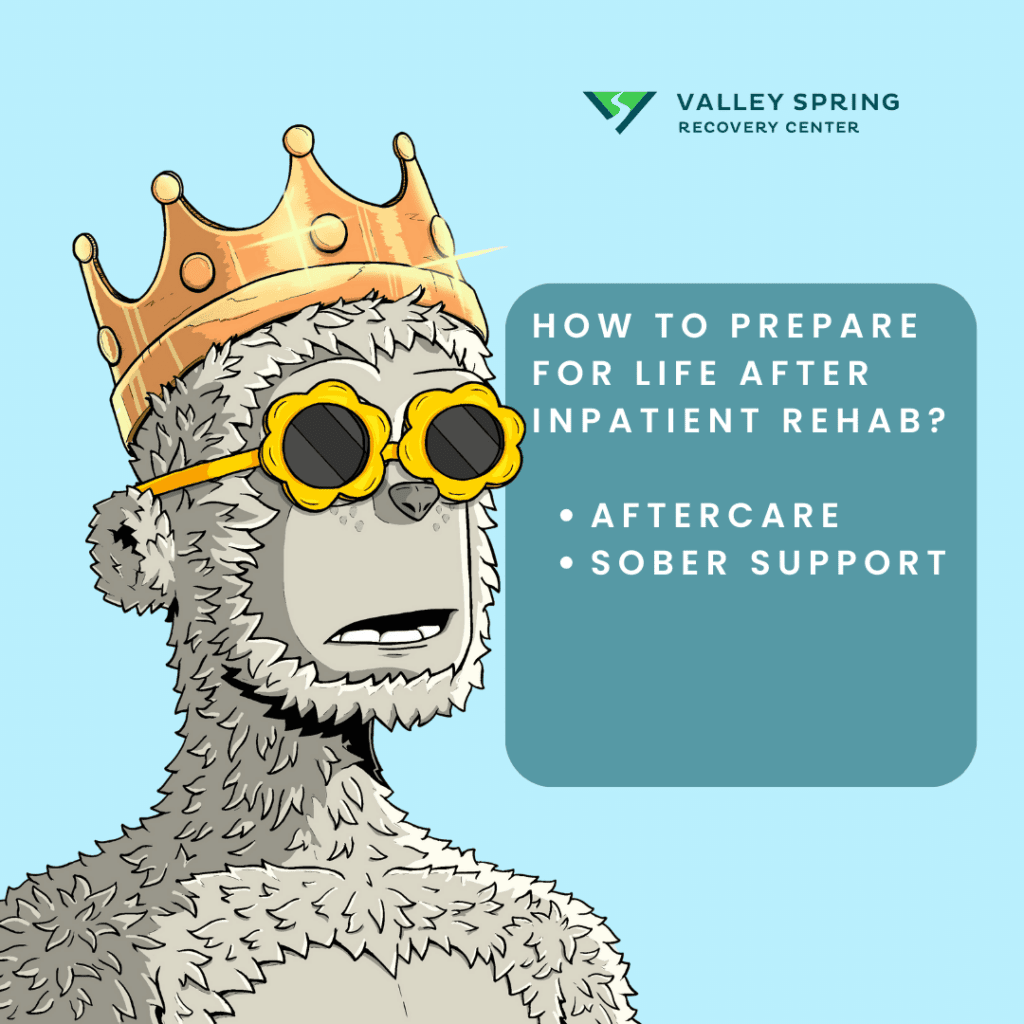
Transitioning back to your life after completing inpatient rehab is a significant step on your journey to recovery. It’s a process that demands careful planning and unwavering dedication to maintaining your newfound sobriety. Transitioning from inpatient rehab to outpatient rehab is a good way to continue treatment while also showing progress and having a more flexible schedule than what is offered in residential treatment. Outpatient rehab also provides an opportunity to continue building a strong support system is paramount. Surround yourself with individuals who understand your journey and can provide the encouragement and support you need. Friends, family members, and peers who share your commitment to a drug-free life can be invaluable allies in your recovery.
Following the aftercare plan provided by your rehab program is crucial. Consider it your roadmap for sustained recovery. Attend therapy sessions, support groups, and any recommended follow-up care appointments diligently. This plan is designed to provide you with ongoing guidance and assistance as you transition back into your daily life.
In addition, setting achievable goals is essential. Establish realistic milestones for your recovery journey, breaking them down into manageable steps. This approach will help keep you motivated and focused, allowing you to measure your progress along the way. Remember that setbacks can happen, but by remaining patient and persistent, you can continue moving forward toward a healthier, drug-free life.
What Is The Success Rate Of Inpatient Drug Rehab?
The success rate of inpatient drug rehab can vary widely depending on several factors, including the individual’s commitment to recovery, the severity of the addiction, the quality of the rehab program, and the presence of any co-occurring disorders. It’s important to note that addiction recovery is a highly personal journey, and success is defined differently for each person.
While specific success rates of rehab can be challenging to pinpoint because it can be difficult to stay in touch with the recovering individual after they leave treatment, research has shown that inpatient rehab can be highly effective for many individuals. Research indicates a significant reduction in drug use among individuals who complete inpatient rehab. They report fewer instances of drug cravings and a decreased likelihood of relapse (NCBI).
However, it’s essential to view success in the context of lasting sobriety and improved overall well-being rather than solely on whether someone remains completely drug-free.
Ultimately, the success of inpatient drug rehab depends on various factors, and long-term success often involves ongoing support and aftercare. Individuals need to remain committed to their recovery, engage in follow-up treatment, and build a strong support network to increase their chances of maintaining sobriety and improving their quality of life. Success is possible, but it’s a journey that requires dedication and ongoing effort.
National Institute on Drug Abuse. (March 30, 2004). Measuring the Effectiveness of Drug Addiction Treatment.
What are the Cost and Insurance Considerations for Inpatient?
The cost of inpatient rehab can vary widely depending on the program’s location, duration, and the specific services offered. While the financial aspect is important, it’s equally essential to prioritize your health and well-being. Understanding the cost and insurance considerations for inpatient drug rehab is crucial as you plan your journey to recovery. Here’s what you should keep in mind:
- Insurance Coverage: Begin by checking your health insurance policy. Some plans provide coverage for addiction treatment, including inpatient rehab. Contact your insurance provider to understand the extent of your coverage and any out-of-pocket expenses you might incur.
- In-Network vs. Out-of-Network: Insurance companies often have preferred or in-network providers. Using an in-network rehab facility can result in lower costs compared to an out-of-network facility.
- Verification of Benefits: Before entering a rehab program, it’s wise to verify your insurance benefits. This includes understanding your deductible, co-pays, and any limits on the number of days or sessions covered.
- Financial Assistance: Some rehab centers offer financial assistance or sliding-scale fees based on your income and ability to pay. Inquire about these options if needed.
- Additional Costs: Be aware that there may be additional costs not covered by insurance, such as personal expenses or certain types of therapy or services. Ask the rehab center for a detailed breakdown of all potential costs.
- Insurance Preauthorization: Some insurance plans require preauthorization for inpatient rehab. Make sure you follow the necessary steps to obtain this authorization to avoid unexpected denials of coverage.
- Appealing Denials: If your insurance claim is denied, you have the right to appeal the decision. Work with your treatment facility and insurance provider to navigate this process.
What are the payment options for drug rehab?
When exploring payment options for residential drug and alcohol rehab centers, the focus is on practical and accessible means:
- Insurance: Check if the rehab center accepts your insurance policy. Many centers work with major insurance providers and can assist with understanding your benefits and any out-of-pocket costs.
- Scholarships and In-House Financing: For those without insurance, inquire directly with the treatment center about scholarships or sliding scale fees based on income, as well as any available financing options that could make payment more manageable.
- State Assistance: Some states offer assistance programs for residents seeking substance abuse treatment.
By contacting the rehab center directly, you can discuss these options in detail, ensuring you find a viable financial plan for treatment without unnecessary stress.
What is the Difference Between Inpatient and Outpatient Drug Rehab?
The main difference between inpatient and outpatient drug rehab is that inpatient treatment can provide comprehensive medical support and more intensive therapy since the patient is physically living at the facility. Outpatient care is usually a continuation of inpatient treatment which takes place after the patient has been medically and emotionally stabilized and 24/7 monitoring is not necessary.
Outpatient rehab allows you to continue living at home while attending therapy and counseling sessions at scheduled times. It offers more flexibility and primarily addresses the effects of addiction which are not as acute.
What Rights Do Patients Have In Inpatient Rehab?
There are legal and ethical considerations associated with inpatient rehab. These considerations are in place to protect your rights and ensure that you receive proper care. Here are some key points to be aware of:
- Patient Rights: You have specific rights as a patient in a rehab facility. These rights include privacy, confidentiality, and the right to be treated with respect and dignity.
- Informed Consent: Before beginning any treatment, you should provide informed consent, which means you have the right to know and understand the treatment plan, potential risks, and benefits, and you can ask questions or refuse treatment if you choose.
- Confidentiality: Rehab centers are legally obligated to maintain the confidentiality of your medical records and personal information. Your information should not be disclosed without your consent, except in specific situations mandated by law.
- Ethical Treatment Practices: Ethical treatment practices are crucial. You should expect to receive evidence-based and ethical care that prioritizes your well-being.
- Equality and Non-Discrimination: You have the right to be treated without discrimination based on factors such as race, religion, gender, or sexual orientation.
- Compliance with Laws and Regulations: Inpatient rehab centers are required to comply with local, state, and federal laws and regulations regarding healthcare and addiction treatment.
- Patient Safety: The facility must prioritize your safety, providing a secure environment and appropriate medical care when needed.
- Access to Records: You have the right to access your medical records, and the facility should provide a process for you to do so.
Is Family Involvement Encouraged During Inpatient Rehab?
Family involvement in inpatient drug rehab programs can significantly benefit your recovery journey. It creates a robust support system, improves understanding of addiction, and helps mend strained relationships. Family therapy and education sessions enhance communication and reduce conflicts while educating loved ones about triggers and relapse prevention. Their active engagement in your recovery process can also boost your commitment to treatment and address co-dependency issues when necessary.
However, it’s important to understand that the extent of family involvement can vary between rehab centers and should align with your preferences and circumstances. Some programs may require or strongly encourage family participation, while others make it optional. Ultimately, the decision should be based on what will provide the most support and benefit for your unique path to recovery.
What Stage Of Addiction Is Appropriate For Inpatient Rehab?
Inpatient drug rehab is a comprehensive and structured approach to addiction treatment that offers individuals a safe and supportive environment to overcome active addiction. If drug tolerance and dependence are not present, and the addiction is mild, outpatient rehab is a better option depending on the diagnosis of a professional.
Whether you’re seeking help for yourself or supporting a loved one through their recovery, understanding the ins and outs of inpatient drug rehab is essential. Remember that success in overcoming addiction often involves ongoing commitment, a strong support system, and a personalized treatment plan. By seeking help and taking this courageous step, you’re on the path to a healthier, drug-free life filled with hope and possibilities.
What Is The Difference Between Regular Inpatient Rehab and Luxury Drug Rehab?
Inpatient drug rehab is a comprehensive and structured approach to addiction treatment that offers individuals a safe and supportive environment to overcome active addiction while luxury drug and alcohol rehab offers the same treatment but in a high-end setting with more amenities, specialty programs, and individualized care.
Sources
-
- https://www.ncbi.nlm.nih.gov/books/NBK230395/
-
- https://www.ncbi.nlm.nih.gov/pmc/articles/PMC1360883/
Ben Fisher
All author postsShare This Post

